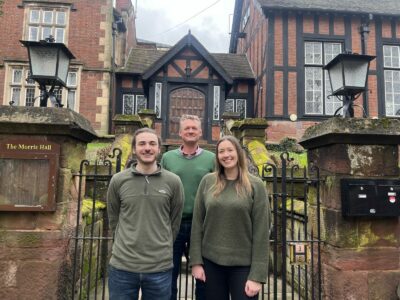Natural Capital: Investing in SuDS to improve Budgets and Environments
Urban Authorities are increasingly looking at the role of Natural Capital Investment Plan to mobilise existing and new sources of funding. At the Greater Manchester Mayor’s Green Summit, this was seen as a key priority to promote investment and delivery of opportunities that protect and enhance natural capital to support a healthy population and economy.
Sustainable Drainage Systems (SuDS) are seen as an example where both the environment and budgets are improved for the better.
The management of natural capital draws upon a relatively limited suite of business models and financing strategies, including: public sector grants, public sector service provision, private developer investment and through community-level action. These can be highly vulnerable to future changes to the financial and economic landscape.
The challenge of securing varied and sustained investment in natural capital is common to all cities across the UK. It is hoped that Greater Manchester’s innovative approach can be replicated wider.
A Natural Capital Plan for Manchester
Greater Manchester’s investment plan looks at the roles for different types of potential investors within the wider picture of the social, economic and governance structure of the city region, and of (local and national) environmental policies and regulations. The plan has three key components:
- A pipeline of potential project types which need investment;
2. Finance models to facilitate private sector investment and the role of public sector, and
3. Recommendations to put the plan into practice over the next 5 years.
At its heart are the twin drivers of reducing costs on public assets, while enhancing the environment in which they sit.
The role of SuDS
SuDS are one of the items that can unlock these cost saving opportunities. A clear example of this is a recent sustainable drainage trial at a Moorlands Junior School.
The trial was funded thanks to the Natural Course project, an EU LIFE integrated project to build capacity to protect and improve the water environment. A team headed by Business in the Community (BITC) built a rain garden and transformed a large area of parking and pathways to demonstrate the benefits of SuDS.
Sustainable drainage schemes (SuDS) divert the rain which falls on playgrounds, roofs and car parks away from the public sewer, potentially slashing hundreds of pounds a year off the water bills of organisations like schools, other public bodies and businesses.
They also reduce flood risk, improve river water quality and increase community engagement, biodiversity and green space while protecting society at large from the cost and disruption associated with constantly upgrading and expanding sewer networks.
United Utilities estimates that SuDS schemes like Moorlands’ could save up to £1.75m a year for education budgets if all the city’s 1,300 schools adopted similar measures, with the potential savings at other public buildings and spaces even higher. A similar demonstration scheme is now being planned for an NHS health centre elsewhere in the city.
Moorlands Junior School new rain garden is filled with thirsty plants, which holds on to surface water during heavy downpours, allowing it to soak away slowly, and replacing tarmac and paths with permeable surfaces which water passes straight through instead of running into a drain.
The project seeks to establish that investing in SuDs can be cost-effective, not just for schools, but for properties across Greater Manchester and beyond. Natural Course and BITC are actively working on funding streams to help cash-restricted public services like schools and the NHS reap the advantages of these measures without dipping into their own reserves.
Using Greater Manchester as a test bed, UK cities can build their resilience in the face of climate change, population growth and increased urbanisation by utilising SuDS in the public realm.
London: Managing Green Infrastructure through Joined up Planning
The Greater London Authority has also looked at Natural Capital Investment through its Green Infrastructure task Force Report. The Plan recognises that investment in London’s ‘green infrastructure’ is required alongside investment in the transport, water, energy and other infrastructure.
London is already a green city, with over 47% of its area classified as green or blue, and with over 8 million trees. The report says there is a need to reconsider the roles and purposes of many of our urban green spaces – for example, by combining recreation with flood risk management.
The report recognises that within public sector organisations, the management of green infrastructure can be fragmented between different departments and teams. However, those responsible for highways, health and well-being, resilience and regeneration may be equally well-placed to drive forward the green infrastructure agenda as those responsible for planning and parks.
The Task Force Report states that changes in the structure of local authorities are beginning to break down traditional silos, and there are lessons to be learnt about which new approaches work best. SuDS requirements by London Boroughs as determined by the planning mechanisms provided by The London Plan are a key part of this.
Applying the right SuDS Approach
GeoSmart’s highly experienced consultants have deployed their expertise across both private development and public realm works. We are able to offer public sector organisations and funding institutions with a bespoke combination of contaminated land risk assessment, flood risk assessment and drainage report for a site to help unlock value from the natural capital. We can provide affordable, accessible and accurate reports for a portfolio of sites with fast delivery times.
This analysis enables the most suitable SuDS system for the site and to enable any planning conditions on contaminated land, flooding and SuDS drainage.
We are also able to offer more detailed runoff calculations and offer preliminary SuDS designs based on the site’s unique characteristics.
For more information, call us on 01743 298 100 or email enquiries@geosmartinfo.co.uk



